Hawaii’s economy is set to diverge into two distinct paths worthy of noting for visitors: a slow and challenging recovery for Maui, contrasted by more steady tourism on the other islands.
While Maui grapples with ongoing housing shortages and a disrupted labor market, Oahu and the other neighbor islands maintain a more robust tourism sector.
For travelers, this means that visiting Maui might offer a different experience, with limited services, fewer options, and potentially higher costs as the island continues its journey of rebuilding and recovery.
Visitor spending and the future of Hawaii tourism.
According to the state’s UHERO, visitor spending in Hawaii is now expected to remain lackluster through the end of the decade, indicating a shift in the travel landscape. This trend could affect the availability and pricing of services for visitors.
As the growth in U.S. travelers continues to slump, we might see fewer promotions and discounts, leading to higher prices, especially during peak seasons. If you’re planning a trip to Hawaii, be prepared for a possible increase in travel expenses and consider seasonality and things like booking early to attain the best rates.
Challenges facing Maui’s recovery and visitor experience.
Maui’s wildfire recovery has been challenging and slow. Residents displaced by the fires have impacted hotel availability, among other things. This may translate into a more limited selection of accommodations, potentially higher prices, and fewer options for travelers.
If Maui is on your travel list, planning ahead is more important than ever, and you might want to explore staying in areas less impacted by the fires.
Hawaii labor market and its impact on tourism.
Hawaii’s labor market is facing clear challenges, with a decline in the overall workforce on visitor-centric Maui and slowing job growth across the state. The state reports that Maui’s labor force has shrunk by about 4,200 workers, resulting in ongoing labor shortages.
Travelers might notice the impact through reduced services, longer wait times or even closures of certain amenities. Elsewhere in the state, job growth has also slowed, which could further strain the tourism sector, potentially affecting visitor experiences across all islands.
Anemic international Hawaii tourism.
The anticipated return of international travelers, mainly from Japan, is not happening as quickly as many had hoped, despite the governor’s repeated efforts to promote Hawaii in Japan as seen in his multiple visits.
Visitor numbers from Japan remain roughly half of their pre-pandemic levels, and this is expected to persist in the near future. This trend means Hawaii’s visitor industry will continue to rely heavily on U.S. travelers.
This slowdown might be an advantage rather than a problem for those looking for a more relaxed travel experience with fewer crowds.
Housing costs and the future of Hawaii short-term rentals.
Rising housing costs, particularly on Maui, are impacting the availability of short-term vacation rentals. There are ongoing plans to convert up to 7,000 short-term rental units into long-term housing, which could further limit options for travelers. This may mean even fewer rental choices and higher prices in the coming years. It’s a trend that makes early planning and booking ever more important.
Hawaii’s future beyond the tourism industry.
Hawaii’s future seeks to rely on expanding beyond tourism to create a more resilient economy. Without a clear focus, emerging industries, including ocean-based activities, video production, and hopefully more, will be explored as ways to diversify and provide long-term stability.
With hopes of other sectors growing, travelers might also see related new experiences and services emerge, offering a fresh take on the Hawaii experience beyond traditional tourist activities.
Hawaii’s evolving economy will undoubtedly impact the visitor experience in the years ahead. With slower growth, rising costs, a constrained workforce, and other changes in our tourism sector, visitors may experience shifts, including higher pricing, uncertain service availability, and changes to the overall feel of a Hawaiian vacation.
Staying informed and planning ahead will help you make the most of your Hawaii trip and still enjoy all that Hawaii has to offer despite these economic changes.
We welcome your thoughts!
24Q3_Forecast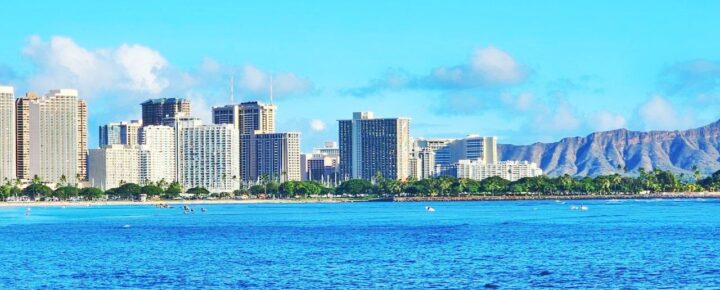
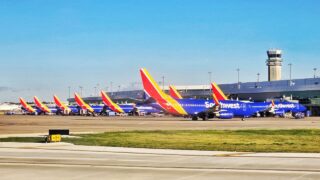
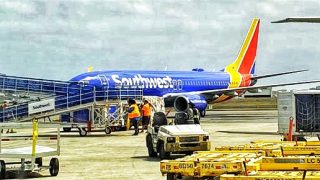
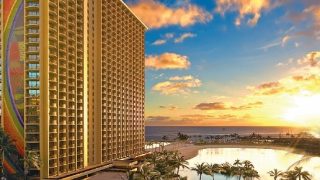

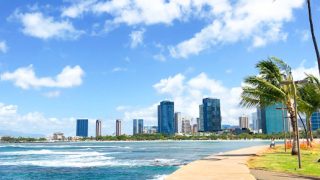

My customers, family and friends all know that my wife and I regularly travel to the islands at least twice a year.
Post pandemic travel restrictions and before inflation took off I helped several individuals book a Hawaiian vacation.
But after Lahaina fire nothing haven’t spoken to anyone interested in vacationing on the islands in over a year.
Why?
Those that went were blown away by high cost of everything. After Lahaina fire negative vibes coming from Maui put a nail in the coffin on those planning a trip to the islands.
We are not wanted message was heard loud and clear.
Then there’s inflation the cost of everything has gone out of sight. Food, housing, insurance, gas and after school care costs are off the chart here in California.
Staycation is back in vogue.
Leadership continues to drop the ball. Covid was that opportunity and learning lesson to diversify revenue streams. The lack of action and common sense is mind boggling. Tourism cannot be our sole source of revenue. We ship billions to Las Vegas, yet “pretend” we’re all against gambling. It’s ridiculous. If the argument is crime, it’s already here. At a minimum, there’s no reason we cannot allow online gaming, sports betting, etc – where there’s no local presence, outside of licensing in Hawaii – what’s the hold up? Prove me wrong. Get with it Hawaii legislature.
Nice to hear the STR’s owners two cents worth.
Let’s talk about the elephant in the room. The causal shortage of the declining economy is a sharp drop off in tourism on Maui following the anti-tourist sentiments and actions by Mayor Bissen and Governor Green. Although you see comments about costs, hotel and other expenses on Maui are not dramatically different than before the Lahaina fire. But after being told to stay away, or come with sensitivity, people began to reevaluate their past plans and began to look elsewhere, discovering more cost-effective options.
The Golden Goose is on life support, and no more Junkets by Bissen and Green, like the latest to LA, will resuscitate it.
Trying to alter the economy of Maui, rather than restore the tourist industry, will take decades. But by then tens of thousands more locals will have departed. Wake up and smell the coffee. It’s bitter. And no reasonable plan is even remotely on the horizon to make it better.
Come to Maui. You’ll love it. It will be less expensive than a mega amusement complex in Florida and you will find helpful, caring hosts that are real people. All the talk about staffing shortages is not justified. We have repeat customers in our STR that always return and book their next trip immediately. Enough negative bashing.
Now is a great time to go to Maui. Vacancy is down and short term rentals are lowering nightly rates.
The island offers many activities and beautiful beaches.
Sad to see so much bad, and inaccurate, press out there.
I was hoping to come to the Hawaiian islands in year 2025, Maui specifically. After the fire I would like to come and support some of our favorite places to visit. However, Airfare has doubled and a 3 BDRM condo for 1 week was costing $6000. I have canceled my annual meeting that I have been attending for some 25 years, no airline flight, and canceled my condo reservations. I feel the increased costs are not justified and border on gouging status. Hopefully I’ll be able to come back soon.
3 BR condos are hard to find. The reason is that there’s almost no demand. Have you tried getting a 2Br and a 1Br or two 2Br’s in the same building?
A cheap hotel will run you at least $1000 per night per room + tax. You’d need two. That’s about $16,500 per week and you wouldn’t have a kitchen, laundry or living room